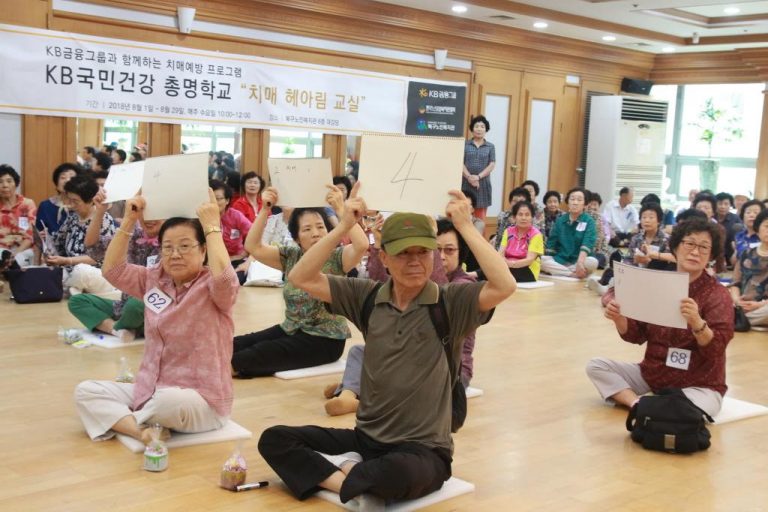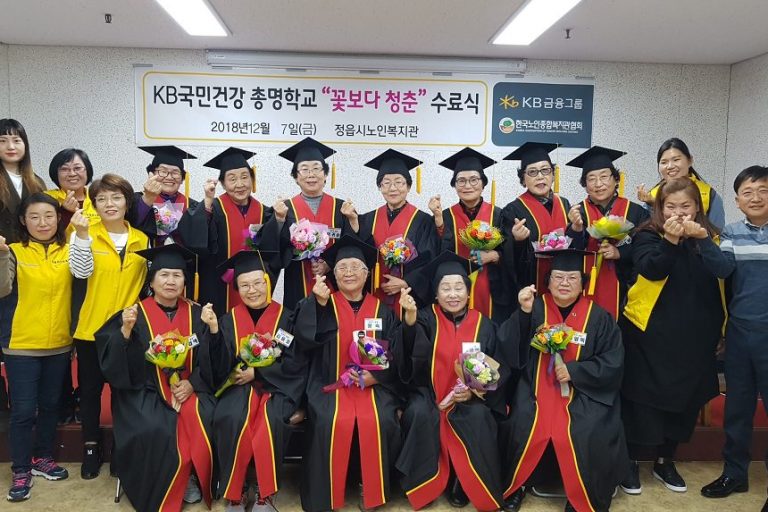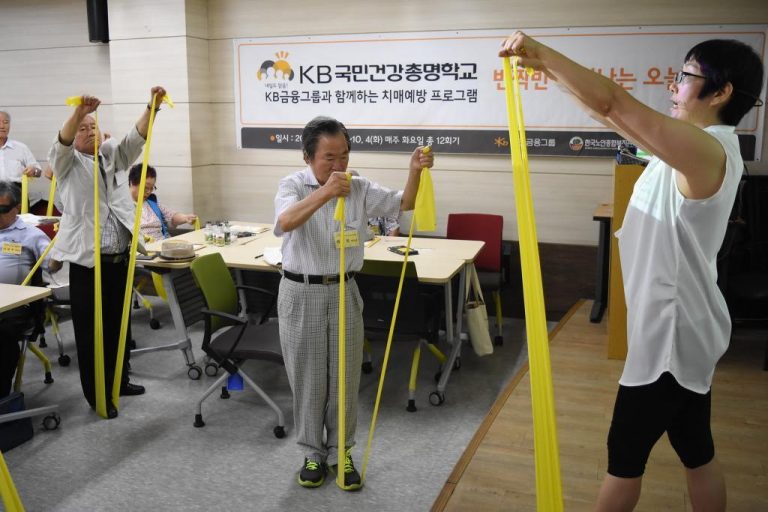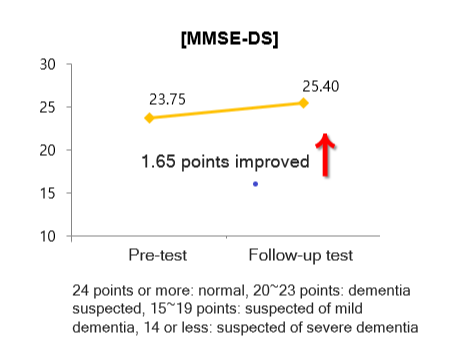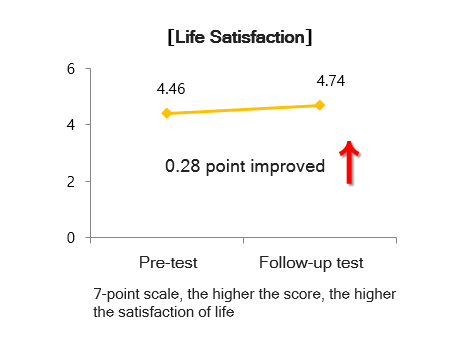2020 HAPI 2nd Prize Winner
As countries in Asia continue to age they will have to contend with the substantial challenge that dementia presents in terms of the ability of older people remain self-reliant and age in place. South Korea is one of the world’s most rapidly aging societies, with people aged 65 or older already making up 15.06 percent* of the population, and as a result, it is already having to address this issue head on. Currently, an estimated 700,000 people in South Korea have already been diagnosed with dementia and that number is expected to rise.
In response, the Korea Association of Senior Welfare Centers (KASWC) developed the KB Good Memory School, a senior center–based dementia program that is designed to be implemented in non-medical social care settings. The School is a 12-session group intervention program that was created based on theoretical and empirical research and consists of semi-structured health promotion education and activities in four areas: cognitive function, physical health, social wellbeing, and nutrition. The objective is to create a healthy lifestyle that will have a positive effect in delaying or preventing the onset of dementia after the sessions are over.
The course consists of a core program on the four target areas but about 50 percent of the course material is left open to be designed by individual senior centers, allowing them to tailor the course based on available resources and the needs of their community. This flexible approach means the course is appealing to older people. As one participant writes, “I am 94 years old. I had been very depressed taking care of a disabled daughter. But I couldn’t wait to participate in the next session of the Good Memory School because it was so fun. I saw myself getting brighter as the sessions continued.”
At the same time, KASWC has ensured that programming for the school is evidence-based and data driven by bringing together an interdisciplinary advisory board consisting of experts from social work, public health, psychiatry, and preventive medicine to verify and standardize the program. In addition, training sessions are held for all staff of the schools to ensure the quality and consistency of implementation. This approach has paid off in terms of results, with surveys undertaken after the program showing statistically significant changes in satisfaction with life, improvement in MMSE-DS (mini-mental state examination for dementia screening) scores, and decreased depression. As staff point out, “Older people belonging both to the normal category and high-risk groups showed statistically significant improvement in health status in the multi-dimensional health area after participating in the Good Memory School.”
An important aspect of the program is its ability to reach and target older people in need of what the program has to offer. KASWC has leveraged a network of approximately 400 senior welfare centers around the country, with nearly 1.5 million members, ensuring that a wide range of older people have access to the program. In addition, participants are recruited using a screening test for mild cognitive impairment (MCI), ensuring that the school is targeting the people who would most benefit from it. As of the end of 2019, a total of 5,266 seniors had participated in the sessions at 97 Senior Welfare Centers (nearly one-third of all KASWC centers). KASWC is also hoping to expand the school to all member centers in the coming years. In the high risk group (less than 23 points on the MMSE-DS) the average score improved from 19.88 to 22.44, meaning that participants were almost out of the high-risk range.
* AHWIN, “Data on Aging,” www.ahwin.org/data-on-aging; compiled based on United Nations, Department of Economic and Social Affairs, Population Division, World Population Prospects: The 2019 Revision, Key Findings and Advance Tables (2019)
KEYS TO SUCCESS
- The initiative is carried out in a community-based, nonmedical setting where the participants feel
comfortable and supported. - The program is evidence-based, incorporating an advisory board of experts to inform the development
of the activities. - Training and motivation-building efforts have been critical in order to get support of the staff at each
center and ensure that pre- and post-testing is conducted accurately. - The program coincided with the Korean government’s introduction of a National Responsibility Policy
on Dementia Management, and KASWC was able to create synergy between the government’s
preventive programs and their work.


